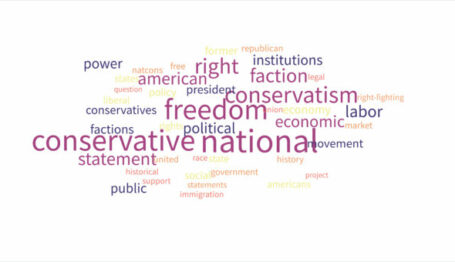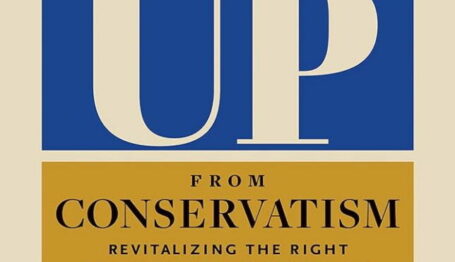Special Report
A New Policy Agenda for the “Regressive Resistance”: The Republic’s Norms


A New Policy Agenda for the “Regressive Resistance” (full series)
The Republic’s Norms | The Trouble of Voting
If You Can’t Beat ’em, Pack ’em | What Happened to Civil Liberties?
Summary: The Left isn’t evolving and adapting without purpose. Engineering new financial mechanisms and reframing socialist arguments are only the means that left-wing activists and politicians plan to use to push policy change; their ends deserve similar scrutiny. Unfortunately, as the New Left’s methods have developed, its policy agendas have arguably devolved. With a newfound and ironic emphasis on populist policies—abolishing the Electoral College and packing the Supreme Court—left-wing influencers and elected officials would fundamentally remake the United States of America.
Since retaking the House of Representatives in the 2018 midterm elections, a new cohort of young, uber-progressive congressional Democrats have enthusiastically proposed legislation to fundamentally change the fabric of the United States. Eager to tap into the energy generated by their comrades in the House of Representatives, 2020 Democratic presidential candidates have also advanced positions that overemphasize the “democratic” part of the United States’ republican form of democratic government.
Cynics might say that the Left has always worked to undermine American institutions and cultural norms, and while a hard-left fringe has always existed, new data suggest that far-left philosophies enjoy burgeoning support these days. An August 2018 Gallup poll revealed less than half of Democrats (47 percent) view capitalism favorably. In 2016, 56 percent of Democrats held a favorable view of capitalism.
A 2017 Pew Research study found that 48 percent of Americans would prefer a bigger government that provides more services to the public. The same study found that support for increased government spending has risen since 2013 and that younger people were more likely to support government expansion.
In 1984, socialist sympathizers lived in the outer fringes of the Democratic Party—if they were allowed at all. Poor Walter Mondale enjoyed the endorsement of the AFL-CIO and the National Organization of Women, but he lost the general election in catastrophic style to the pro-capitalist and militantly anti-communist President Ronald Reagan. Even more impressive were Reagan’s victories in traditionally “blue” states like New York, Massachusetts, and California. If conservative hero Reagan could dominate the Electoral College and the national popular vote just 35 years ago, then something new and different is motivating today’s Left.
The difference—at least in terms of policy—seems to be disregard for long-standing constitutional norms. Many of the ideas energizing the Left brush off long-standing government precedents or would require amendments the U.S. Constitution. Instead of viewing the Declaration of Independence as “an apple of gold” and the Constitution as its “frame of silver,” as President Lincoln did, rising Democrats see the founding documents as an underwhelming promise impeded by a government designed to thwart man’s better angels.
Free Speech
As enshrined in the First Amendment, the right to free speech is integral to the American identity. In no other country in the world do citizens enjoy such liberal protections for speech and expression as do Americans. From irreverent songs to provocative philosophical treatises and daring scientific advancements, the United States’ influence in all fields stems from this fundamental right.
So perhaps the most vulgar of the New Left’s policy agendas is its campaign to chill free speech in the United States.
Once in power, House Democrats took aim at political speech. The first item House Speaker Nancy Pelosi introduced in the 116th Congress was the deceptively named “For the People Act” (H.R. 1). The legislation is a 571-page wish list of blatantly unconstitutional changes to campaign finance, which would force nonprofit entities engaged in political speech to disclose sensitive donor information.
In 2010, the Supreme Court established that nonprofit entities and corporations have the right to collectively participate in political discourse in the landmark case Citizens United v. Federal Election Commission (FEC). While the decision proved controversial, Citizens United similarly affirmed the rights of labor unions to do the same. But today’s progressives claim that this decision allows so-called “dark money” to influence American politics and taints the political process. Since the Supreme Court’s decision, activists have called for politicians to upend the case.
Instead of dismissing this foolish suggestion, H.R. 1 explicitly calls for a constitutional amendment to overturn the case, which would gut the First Amendment and nullify decades’ worth of jurisprudence—all to cow conservative and libertarian political donors.
The “For the People Act” also dangerously expands the definition of “electioneering communications” so that more and more nonprofit organizations—and their donors—would be subject to disclosure. Also, it would empower the FEC to further regulate Internet communications related to elections.
Of course, congressional Democrats say that such maneuvers will make elections more fair and reduce the influence of money in politics. The unintended consequence of the bill would, in fact, do the opposite. By threatening to reveal the identity of political donors, many citizens will choose to forgo participating altogether. Only the most strident of voices will continue to sacrifice their privacy to participate in electoral politics. Tribalism and polarization will likely only increase in such an environment.
Similarly, the onerous regulations Democrats want to add to campaign and issue advertisements will price out small nonprofit organizations. They will simply not be able to afford to run online, radio, and television ads because new disclosure regulations will needlessly add to the expense of participating in public discourse. It seems the Democrats are absolutely willing to raise the price of free speech.
Another speech-chilling feature of H.R. 1 is a naked power grab: adding another commissioner to the FEC. Currently, the commission is a body of six commissioners with strict rules about partisan affiliation in an effort for decisions to be as non-partisan as possible. It’s designed to encourage nonpartisan consensus on a body that has the power to silence political discourse. Adding another seat to the FEC would intentionally unbalance the body and encourage more partisan decisions.
In the next installment of A New Policy Agenda for the New Left, learn how some of the most tedious areas of politics present the most opportunities of the New Left.



